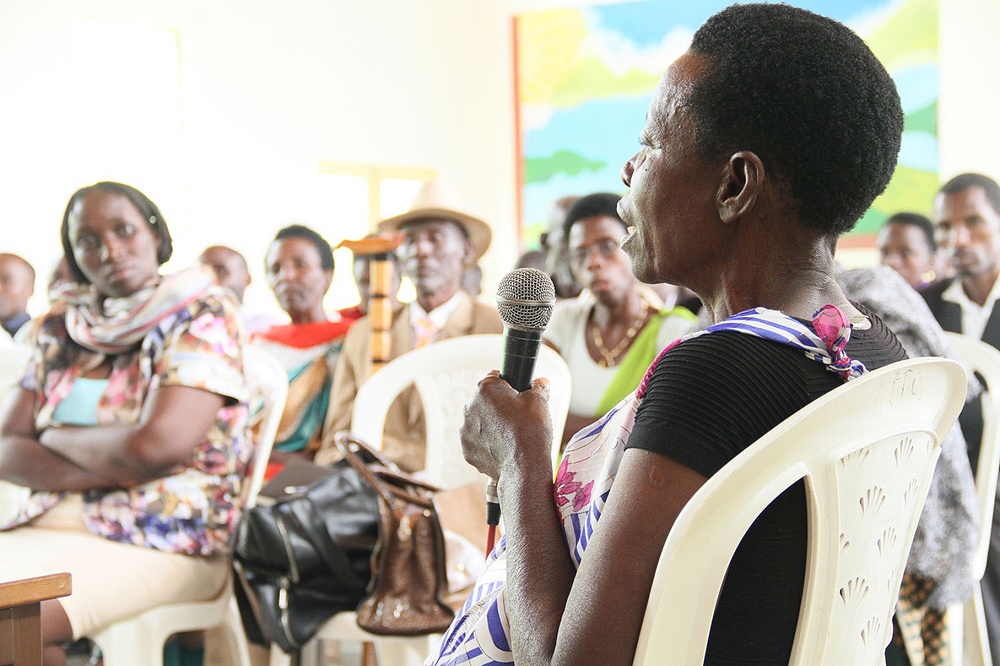Healing Trauma and Building Trust and Tolerance in Rwanda
Interpeace Peacebuilding in Practice - Paper N. 4
Lessons learned from Peacebuilding Approaches to Psychosocial Support Group Healing in Rwanda
25 years after the Genocide against the Tutsi, trauma healing remains a pressing public health issue in Rwanda. In 2015, a research study conducted by Interpeace and Never Again Rwanda (NAR) showed that many Rwandans continue to experience persistent trauma, which poses a challenge to the country’s development and peace. To help address this challenge, Interpeace and NAR implemented a psychosocial support group approach, geared at both individual healing and fostering social cohesion.
With the support of the Government of Sweden, Interpeace and Never Again Rwanda, are proud to launch a new report summarizing the findings of the four-year Societal Healing and Participatory Governance for Sustainable Peace in Rwanda programmme, entitled: Healing Trauma and Building Trust and Tolerance in Rwanda.
The report explores the question of how peacebuilding approaches can address deep wounds of the past, reduce trauma and psychological distress, and build resilience, forgiveness and social tolerance in a post-genocide setting like Rwanda. The data generated over the course of the programme empirically demonstrates the positive impact of psychosocial group therapy modelled on peacebuilding approaches on at least two major change aspects:
- It effectively reduces trauma, revenge tendencies as well as anger, and builds positive psychological resilience, social trust and tolerance.
- It effectively reduces the likelihood of participants engaging in violence and victimization and increases the likelihood of individuals engaging in formal mechanisms for formal civic participation as well as informal forms of family and interpersonal conflict resolution and mediation.

